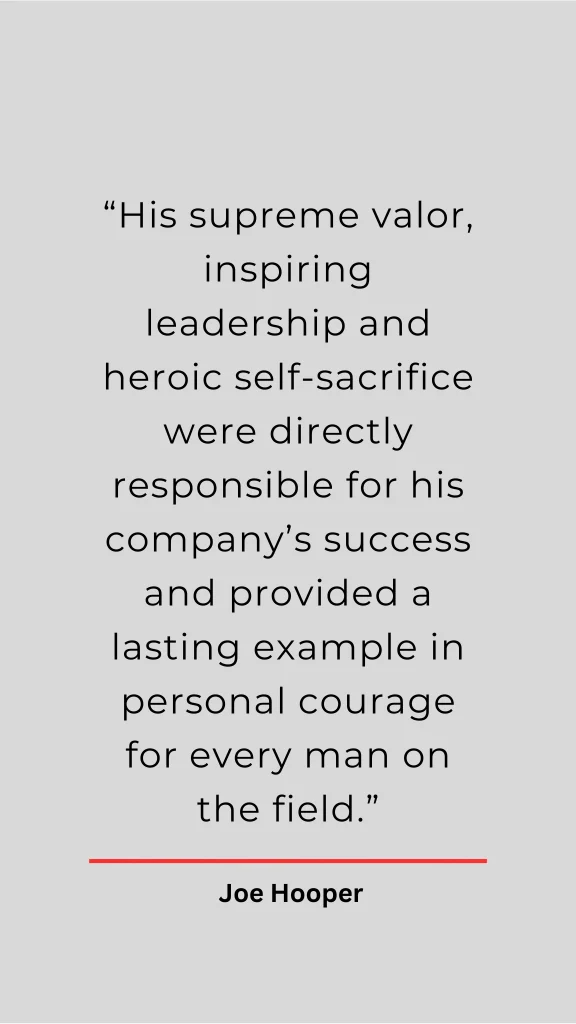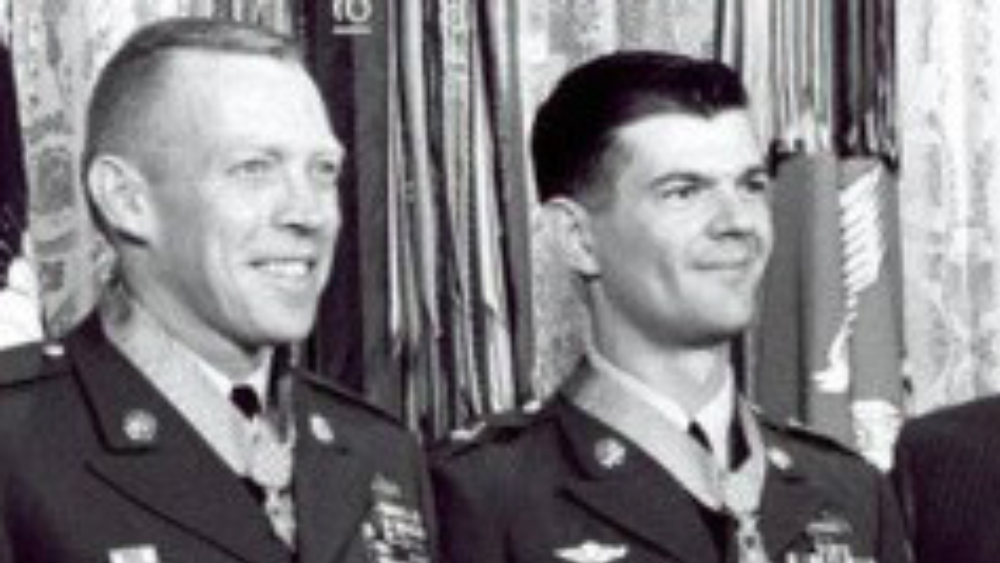In the annals of American military history, few names evoke the same mixture of awe, tragedy, and admiration as Joe Ronnie Hooper. Born in a small South Carolina town and raised in the quiet farmlands of Washington state, Hooper’s story is not one of privilege or perfect discipline—it’s one of raw courage, imperfection, and a relentless sense of duty that carried him through some of the most brutal battles of the Vietnam War.
By the time his military career ended, Joe Hooper had become one of the most decorated soldiers in U.S. history, earning the Medal of Honor, two Silver Stars, six Bronze Stars, eight Purple Hearts, and five Air Medals. Yet, despite his long list of accolades, Hooper’s life tells a story that goes far deeper than medals and military honors—it tells the story of a man who gave everything to his country, even when the cost was his peace of mind.
From Small Town Boy to Military Man
Joe Hooper was born on August 8, 1938, in Piedmont, South Carolina, the son of a modest American family. When he was still a young boy, his family moved across the country to Moses Lake, Washington, where he attended high school and developed the adventurous spirit that would define his future.
Like many young men of his generation, Hooper was drawn to military life early on. In 1956, at just 18 years old, he enlisted in the United States Navy. He served aboard the USS Wasp and USS Hancock, earning the rank of petty officer third class before leaving the Navy in 1959. But civilian life didn’t hold his interest for long. The discipline, camaraderie, and purpose of the military had left a mark on him—and before the next year was out, he re-enlisted, this time in the U.S. Army.
A Natural Leader in the Ranks
Hooper quickly rose through the Army ranks, completing Airborne School and serving with several storied units, including the 82nd Airborne Division and later the 101st Airborne Division—the famed “Screaming Eagles”. His career was far from smooth. Known for his rebellious streak, Hooper occasionally clashed with authority, resulting in a few disciplinary actions under Article 15 hearings. Yet his superiors couldn’t ignore his natural leadership, nor his gift for inspiring others in combat.
By the mid-1960s, Hooper had become a seasoned paratrooper and squad leader, having served tours in Korea, Panama, and ultimately Vietnam. But it was in the chaotic jungles and rivers near Huế, during the height of the Vietnam War, that Joe Hooper would cement his legacy forever.
February 21, 1968 — The Day That Defined Him
It was February 21, 1968—just weeks after the Tet Offensive, one of the bloodiest campaigns of the war. Staff Sergeant Hooper’s unit, Company D, 2nd Battalion (Airborne), 501st Infantry, came under devastating fire from entrenched North Vietnamese forces along a riverbank near Huế.
What followed was one of the most extraordinary acts of heroism ever recorded in U.S. military history. Ignoring a hail of machine gun fire, Hooper led a handful of men across the river, overrunning multiple enemy bunkers in a daring charge that inspired the rest of his company to follow. When several of his comrades were wounded, he ran into open fire—not once, but multiple times—to pull them to safety.
Though wounded himself, Hooper refused medical aid. He charged ahead again, single-handedly storming three more enemy bunkers, destroying them with grenades and rifle fire. At one point, when a North Vietnamese officer lunged at him, Hooper met the attack with his bayonet, killing the officer in hand-to-hand combat.

Despite multiple wounds and severe blood loss, he kept fighting. He cleared houses, neutralized sniper nests, rescued trapped soldiers, and killed enemy combatants threatening his men. Even after grenade fragments hit him and blood loss weakened him, he refused evacuation until the next morning—once he completed the mission and ensured every man in his unit was safe.
President Richard Nixon personally presented Joe Hooper with the Medal of Honor at a White House ceremony in March 1969. The award recognized his “conspicuous gallantry and intrepidity in action at the risk of his life above and beyond the call of duty.”
The Weight of Greatness
After Vietnam, Hooper continued to serve, taking on roles in Panama, Fort Benning, and Fort Polk. He even earned a direct commission as a second lieutenant, later reaching the rank of captain. Yet, despite his remarkable achievements, he struggled to adjust to post-war life.
Hooper loved the Army and hoped to complete 20 years of service, but bureaucratic rules—particularly regarding education requirements—forced him into early retirement in 1974. The forced retirement devastated him, stripping away the sense of service and camaraderie that had defined his identity.
Like many Vietnam veterans, Hooper returned home to a country deeply divided by the war. The political turmoil of the era, coupled with widespread anti-war sentiment, left many soldiers feeling isolated and unappreciated. For Hooper, this sense of alienation was profound. Friends and fellow soldiers later said he was haunted by the war and the loss of his brothers-in-arms. He turned increasingly to alcohol as a way to cope with his inner turmoil.
The Final Battle
Joe Hooper’s life ended far too soon. On May 6, 1979, in Louisville, Kentucky, he died from a cerebral hemorrhage at the age of just 40. Some said his body simply gave out from the physical and emotional toll of combat. Others believed he died of heartbreak—a hero who gave everything to his country but received little understanding in return.
He rests with full military honors at Arlington National Cemetery, near the Memorial Amphitheater—a hallowed ground honoring heroes of every generation.
A Legacy of Courage and Complexity
Joe Hooper’s story is both inspirational and heartbreaking. He wasn’t the picture-perfect soldier. He had his flaws—he broke rules, struggled with authority, and fought personal battles long after the shooting stopped. But in the moments that mattered most, his courage was unmatched.
He didn’t fight for medals or recognition—he fought out of loyalty to his fellow soldiers, his mission, and the unshakable belief that true courage means never leaving anyone behind.
Even today, historians and veterans remember Hooper not just as a war hero but as a symbol of the complicated legacy of Vietnam. His life reminds us that valor is rarely simple, and that the scars of war often last long after the fighting ends.
Remembering Joe Hooper
Joe Ronnie Hooper remains one of the most decorated soldiers in U.S. history, credited with 115 confirmed enemy kills and eight separate combat wounds. But beyond the numbers and medals lies something far greater: a man who embodied the best—and most human—qualities of the American fighting spirit.
He was brave, flawed, loyal, and deeply human. And in that humanity, Joe Hooper became something more than a soldier. He became a legend.











